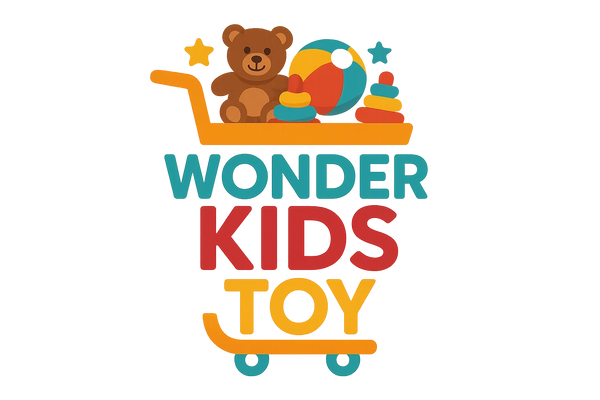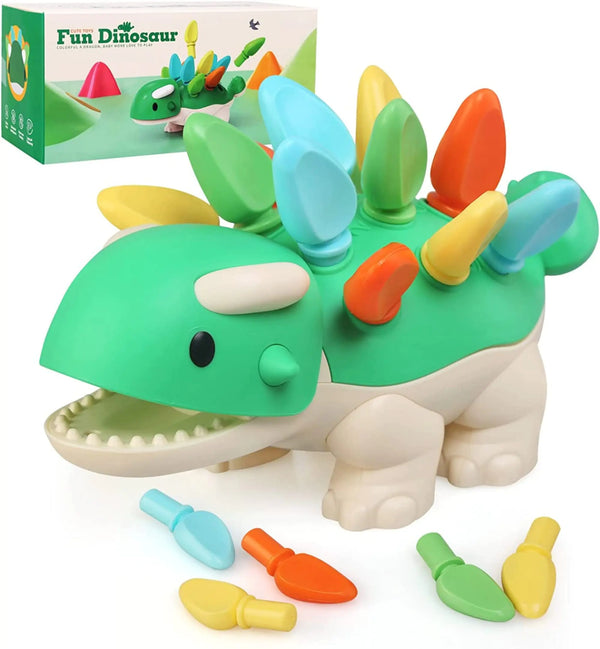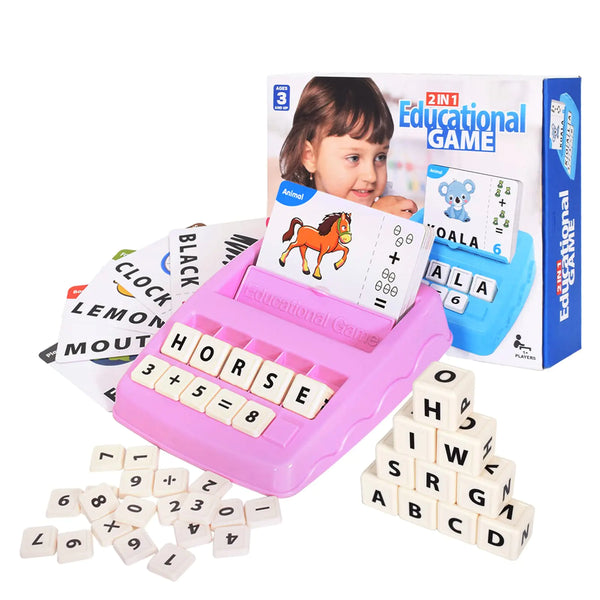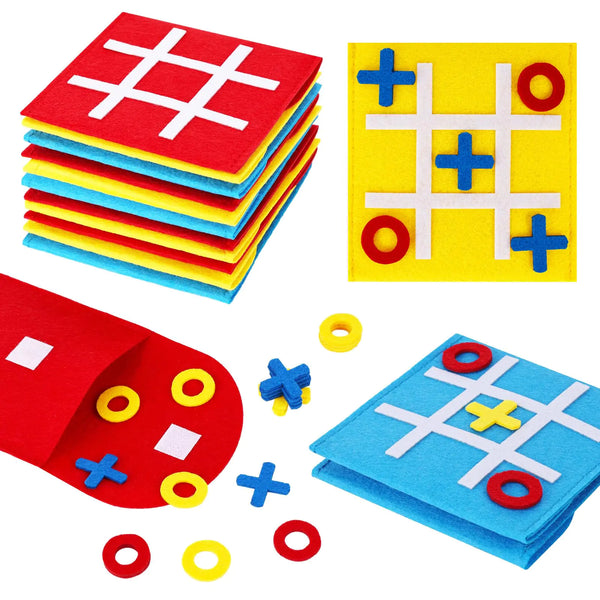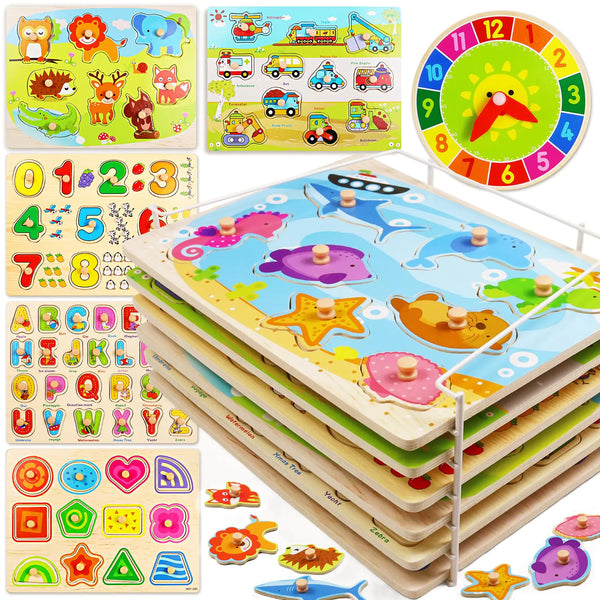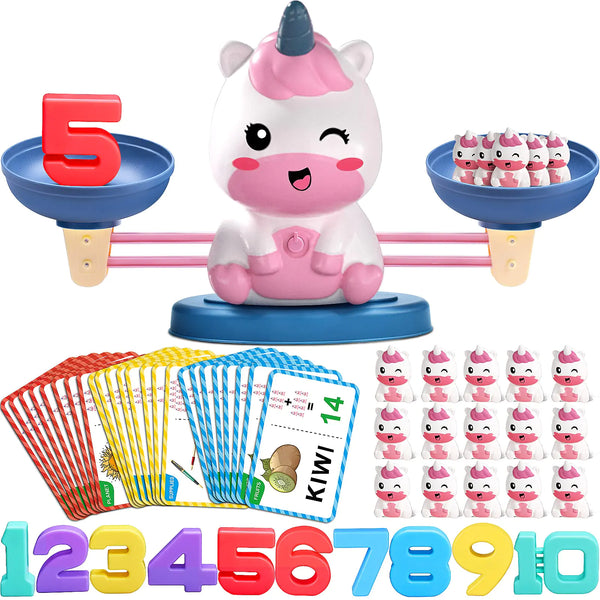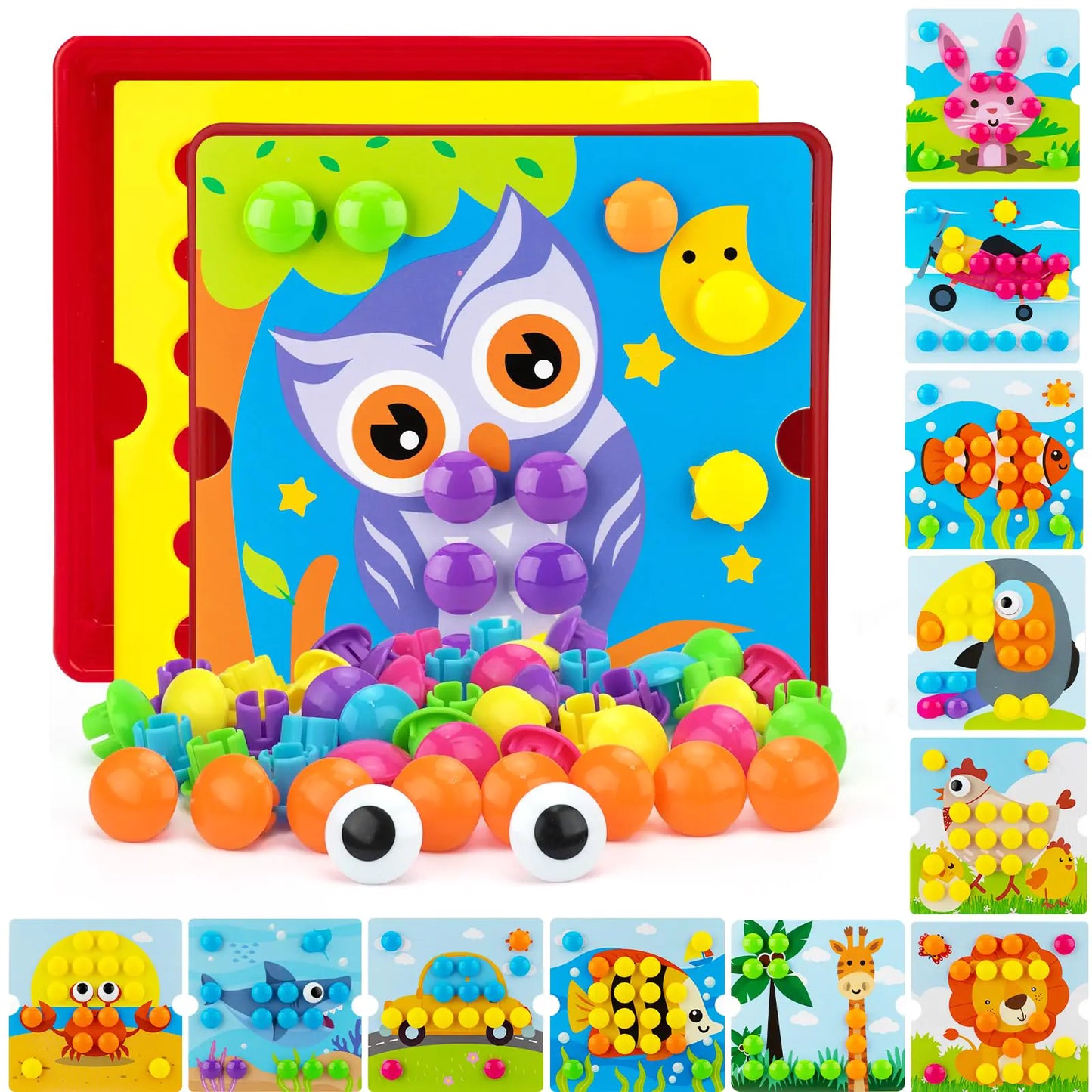In today's fast-paced world, equipping children with strong problem-solving skills is more important than ever. Problem-solving games provide an engaging and effective way to boost cognitive abilities while having fun. From puzzles to interactive storytelling, these activities not only entertain but also foster critical thinking, creativity, and resilience. This article explores various problem-solving games that can help children develop these essential skills.
Key Takeaways
- Problem-solving games enhance cognitive abilities such as critical thinking, logic, and creativity.
- These games can also promote emotional growth by teaching children how to handle frustration and failure.
- Interactive and social problem-solving games help develop communication and teamwork skills.
- Digital and board games provide diverse platforms for problem-solving, catering to different interests and age groups.
- Incorporating problem-solving activities into daily routines can make learning seamless and enjoyable.
Why Problem-Solving Games Matter for Kids

Cognitive Benefits
Problem-solving games are fantastic for boosting your child's cognitive skills. These games challenge their minds, helping them develop critical thinking, reasoning, and decision-making abilities. By encouraging your child to solve puzzles and play games that challenge their mind, you set them up for success in the classroom and beyond.
Emotional Growth
Playing problem-solving games also contributes to emotional growth. Kids learn to manage frustration, develop patience, and build resilience as they work through challenges. This emotional development is crucial for their overall well-being and helps them handle real-life situations more effectively.
Social Skills
Lastly, problem-solving games often require teamwork and communication, which are essential social skills. Whether they're playing with family or friends, kids learn to collaborate, share ideas, and respect different perspectives. These interactions are invaluable for their social development and help them become more empathetic and cooperative individuals.
Boosting your child’s problem-solving skills at an early age is one of the greatest gifts you can give them. Through fun and engaging activities, you help shape them into flexible, independent thinkers who can thrive in an increasingly complex world.
Top Puzzle Games to Boost Problem-Solving Skills

When it comes to enhancing critical thinking, puzzle games are a fantastic choice. They not only entertain but also challenge young minds to think outside the box. Here are my top 10 problem-solving games for kids that enhance critical thinking.
Jigsaw Puzzles
Jigsaw puzzles are a classic and for good reason. They help kids improve their spatial awareness and hand-eye coordination. Plus, they can be a fun family activity that encourages teamwork.
Tangrams
Tangrams are an ancient Chinese puzzle that involves creating shapes using seven flat pieces. This game is excellent for developing geometric understanding and problem-solving skills. It's amazing how such a simple concept can be so engaging!
Sudoku for Kids
Sudoku isn't just for adults. There are kid-friendly versions that simplify the 9x9 grid to a 4x4 or 6x6 grid. Playing Sudoku can improve your child's number comprehension and logic skills. It's a great way to introduce them to the world of numbers and patterns.
Puzzle games require players to think critically and solve complex problems, which can improve their reasoning and problem-solving skills.
So, if you're looking to boost your child's cognitive abilities, these puzzle games are a great place to start. They provide a fun and educational way to spend time together while enhancing essential skills.
Interactive Storytelling Games

Choose-Your-Own-Adventure Books
Choose-Your-Own-Adventure books are a fantastic way to get kids involved in storytelling. These books allow children to make decisions that affect the outcome of the story, fostering critical thinking and decision-making skills. Kids love the sense of control and adventure these books provide, making reading a more engaging and interactive experience.
Role-Playing Scenarios
Role-playing games (RPGs) are a unique blend of storytelling and strategy, inviting kids to step into a character's shoes and explore different personalities and outcomes. These games are not only engaging but also a playground for social and language skills growth. Playing with puppets or costumes can add an extra layer of fun and creativity.
Digital Story Games
Digital story games combine the allure of video games with the educational benefits of storytelling. These games often feature rich narratives and interactive elements that require kids to solve problems and make choices. Interactive story games can help improve literacy and cognitive skills while keeping kids entertained for hours.
Interactive storytelling games are a wonderful way to blend fun and learning, making them a great choice for parents looking to boost their kids' cognitive and social skills.
Board Games That Encourage Critical Thinking

Chess and Checkers are classic games that have stood the test of time. They are excellent for developing strategic thinking and foresight. Chess, in particular, enhances problem-solving skills by requiring players to think several moves ahead. Checkers, while simpler, still demands tactical planning and can be a great introduction to more complex strategy games.
Clue Junior is a fantastic way to introduce kids to the world of mystery and deduction. This game encourages children to use their critical thinking skills to solve a mystery by gathering clues and making logical connections. It's a fun way to develop reasoning abilities and attention to detail.
Ticket to Ride: First Journey is a simplified version of the popular Ticket to Ride game, designed specifically for younger players. It helps kids develop planning and decision-making skills as they collect train cards and claim railway routes across a map. The game is not only educational but also highly engaging, making learning fun.
Board games like these are not just entertaining; they are powerful tools for cognitive development. They teach kids how to think critically, plan ahead, and solve problems in a fun and interactive way.
DIY Problem-Solving Activities

Homemade Escape Rooms
Creating a homemade escape room is a fantastic way to engage your kids in problem-solving. You can design puzzles and clues that are age-appropriate and challenging. It's a great way to encourage teamwork and critical thinking. Plus, it's a fun activity that the whole family can enjoy together.
Scavenger Hunts
Scavenger hunts are another excellent DIY activity that promotes problem-solving skills. You can create a list of items for your kids to find around the house or yard. This activity not only sharpens their observation skills but also teaches them how to follow instructions and think strategically.
Building Challenges with Everyday Items
Using everyday items like cardboard boxes, plastic bottles, and paper rolls, you can set up building challenges for your kids. These activities encourage creativity and innovation as they figure out how to construct different structures. It's a simple yet effective way to boost their cognitive skills while having fun.
Digital Problem-Solving Games

Educational Apps
Educational apps are a fantastic way to make learning fun and interactive for kids. These apps often incorporate games that challenge children to think critically and solve problems. One of the best parts is that they can be used on-the-go, making them perfect for busy families. Whether it's math puzzles or language games, there's an app for every interest.
Online Puzzle Games
Online puzzle games are another excellent resource for boosting problem-solving skills. These games often require kids to use logic and strategy to complete levels. Many of these games are designed to adapt to your child's skill level, ensuring they are always challenged but not frustrated. Plus, they can be a great way to unwind after a long day at school.
Interactive Learning Platforms
Interactive learning platforms combine the best of both worlds: education and entertainment. These platforms offer a variety of games and activities that are designed to engage kids while teaching them valuable skills. From coding challenges to virtual science experiments, these platforms make learning an adventure.
Digital problem-solving games are not just about fun; they are powerful tools that can help your child develop essential cognitive skills. By incorporating these games into their routine, you're setting them up for success in a digital world.
Outdoor Problem-Solving Games

Nature Scavenger Hunts
Nature scavenger hunts are a fantastic way to get kids exploring the great outdoors while honing their problem-solving skills. By searching for specific items in nature, children learn to observe their surroundings closely and think critically about where to find each item. This activity not only boosts cognitive skills but also fosters a love for nature.
Obstacle Courses
Setting up an obstacle course in your backyard or at a local park can be a thrilling way for kids to develop their problem-solving abilities. They must figure out how to navigate each obstacle, which enhances their critical thinking and physical coordination. Plus, it's a great way to burn off some energy!
Team Building Activities
Team building activities are perfect for teaching kids the importance of collaboration and communication. Whether it's a group challenge like building a human pyramid or solving a puzzle together, these activities require kids to work together to find solutions. Teamwork is a crucial skill that will benefit them throughout their lives.
Outdoor problem-solving games offer a unique blend of physical activity and mental challenges, making them an excellent choice for holistic child development.
Using Building Sets for Cognitive Development

LEGO Challenges
LEGO sets are a fantastic way to boost your child's cognitive development. They encourage creativity, problem-solving, and fine motor skills. Building with LEGO bricks helps kids understand spatial relationships and engineering concepts. Plus, it's a fun way to spend time together!
Magnetic Tiles
Magnetic tiles are another excellent option. These colorful tiles can be arranged in countless ways, promoting imagination and critical thinking. Kids can experiment with different shapes and structures, which enhances their understanding of geometry and physics.
Wooden Blocks
Don't underestimate the power of classic wooden blocks. They are simple yet incredibly effective in teaching kids about balance, symmetry, and spatial awareness. Wooden blocks are also great for open-ended play, allowing children to build whatever they can imagine.
Building sets are not just toys; they are tools that can significantly enhance your child's cognitive skills. From problem-solving to spatial reasoning, these activities offer a multitude of benefits.
Card Games That Sharpen the Mind

Memory Match
Memory Match is a classic game that helps kids improve their memory and concentration. By flipping over cards and trying to find pairs, children enhance their ability to recall information and pay attention to details. It's a simple yet effective way to boost cognitive skills.
Uno
Uno is not just a fun family game; it's also great for teaching kids about strategy and quick thinking. The game requires players to match colors and numbers, which helps in developing their pattern recognition and decision-making skills. Plus, it's a fantastic way to spend quality time together as a family.
Go Fish
Go Fish is another excellent card game for kids. It encourages them to ask questions and think critically about the cards they need to complete their sets. This game is particularly good for younger children as it helps them practice their counting and matching skills. It's a great introductory game for kids who are just starting to explore card games.
Card games are a fantastic way to combine fun and learning, making them a must-have in any family's game collection.
Incorporating Problem-Solving in Daily Routines

Incorporating problem-solving activities into daily routines can be a fun and effective way to boost your child's cognitive skills. By turning everyday tasks into learning opportunities, you can help your child develop critical thinking and creativity without them even realizing it. Here are some simple ways to integrate problem-solving into your daily life.
Cooking Together
Cooking is a fantastic way to teach kids about problem-solving. From measuring ingredients to following a recipe, cooking requires kids to think critically and make decisions. Plus, it's a great way to spend quality time together and create delicious memories.
Gardening Projects
Gardening offers numerous opportunities for problem-solving. Whether it's figuring out the best way to plant seeds or how to keep pests away, gardening encourages kids to think ahead and plan. It's also a wonderful way to teach them about nature and responsibility.
DIY Crafts
DIY crafts are perfect for sparking creativity and problem-solving. Whether it's building a birdhouse or creating a scrapbook, these activities require kids to follow steps, make decisions, and sometimes even troubleshoot when things don't go as planned. Unlocking potential through crafts can be incredibly rewarding for both you and your child.
By encouraging your child to solve puzzles and play games that challenge their mind, you set them up for success in the classroom and beyond. These activities also provide an opportunity for quality time together as a family.
Games for Different Age Groups

Preschoolers
For preschoolers, it's all about combining fun with learning. Games like Memory Match and simple jigsaw puzzles are perfect for this age group. These games help improve their memory and problem-solving skills while keeping them entertained. Always ensure the games are safe and age-appropriate.
Elementary Kids
Elementary kids can handle more complex games that challenge their cognitive abilities. Games like Uno and Go Fish are excellent for teaching strategy and enhancing memory. These games also encourage social interaction and teamwork, which are crucial at this developmental stage.
Tweens
Tweens are ready for even more challenging games that require critical thinking and strategy. Chess, for example, is a fantastic game for this age group. It not only sharpens their problem-solving skills but also teaches patience and strategic planning. Balancing fun and challenge is key to keeping them engaged.
Choosing the right game for your child's age group can make a significant difference in their cognitive development. Always consider their interests and developmental stage when selecting a game.
Tips for Choosing the Right Problem-Solving Games

Age Appropriateness
When selecting problem-solving games for your kids, it's crucial to consider their age. Games that are too easy might bore them, while overly challenging ones can lead to frustration. Always check the recommended age range on the game packaging to ensure it aligns with your child's developmental stage.
Balancing Fun and Challenge
A good problem-solving game should strike a balance between being fun and challenging. If a game is too easy, it won't engage your child's critical thinking skills. On the other hand, if it's too hard, they might give up. Look for games that gradually increase in difficulty to keep your child motivated and engaged.
Encouraging Variety
Don't stick to just one type of game. Variety is key to developing a range of cognitive skills. Mix it up with puzzles, board games, and digital games to keep things interesting and cover different aspects of problem-solving. This way, your child won't get bored and will continue to develop a well-rounded skill set.
Choosing the right problem-solving games can make a significant difference in your child's cognitive development. By considering age appropriateness, balancing fun and challenge, and encouraging variety, you can help your child become a flexible, independent thinker.
Choosing the right problem-solving games for your kids can be a game-changer in their cognitive development and creativity. At Wonder Kids Toy Store, we offer a wide range of educational games that are designed to challenge and inspire young minds. Visit our website to explore our latest collection and find the perfect game for your child today!
Conclusion
In conclusion, problem-solving games are a fantastic way to boost your child's cognitive skills while keeping them entertained. From puzzles to board games, these activities encourage critical thinking, creativity, and decision-making. Plus, they offer a great opportunity for family bonding. So next time you're looking for something fun and educational, consider adding a problem-solving game to your child's playtime. It's a win-win for everyone!
Frequently Asked Questions
What are the benefits of problem-solving games for kids?
Problem-solving games help boost cognitive skills, enhance emotional growth, and improve social skills in children.
At what age can children start playing problem-solving games?
Children as young as preschool age can start playing simple problem-solving games designed for their developmental level.
How do problem-solving games enhance cognitive skills?
These games challenge children to think critically, make decisions, and find solutions, which helps in developing their cognitive abilities.
Can problem-solving games be both fun and educational?
Yes, many problem-solving games are designed to be engaging and enjoyable while also providing educational benefits.
Are digital problem-solving games effective for cognitive development?
Digital problem-solving games can be very effective, especially when they are designed with educational goals in mind.
How can I choose the right problem-solving game for my child?
Consider the child's age, interests, and developmental level. Look for games that balance fun and challenge and encourage a variety of skills.
Can problem-solving games help in developing social skills?
Yes, many problem-solving games require teamwork and communication, which can help children develop strong social skills.
Are there any DIY problem-solving activities I can do at home?
Absolutely! You can create homemade escape rooms, scavenger hunts, and building challenges with everyday items to engage your child in problem-solving activities at home.

